
Do you have what you need to make your garden grow?


Garden Center
Store Hours
Mon-Sat:
6:00am - 9:00pm
Sun:
8:00am - 8:00pm
Curbside:
09:00am - 6:00pm
Location
Popular at Your Garden Center
Trending Garden Supplies in May
Trending Live Plants
Garden Project Calculators
;Resize=(703,395.44))
Grass Seed Calculator
When you're ready to seed your lawn, our calculator helps you estimate the amount of grass seed you'll need to get the job done.
;Resize=(703,395.44))
Mulch Calculator
Enter your preferred material, the square footage and mulch depth of the coverage space for accurate results.
;Resize=(703,395.44))
Fencing Calculator
We'll calculate the amount of fencing you should purchase based on your property needs.
Shop Outdoor and Garden Brands
Frequently Asked Questions About Gardening
What planting zone am I in?
Check the USDA zone map, as planting zones have shifted over the years. Planting zones with higher numbers can plant earlier in the year. Increase your odds of successful gardening by choosing plants that are meant for your zone.
Is it ok to plant seeds outside?
If the soil is warm and pliable, consider planting your fruit, veggie, or flower seeds directly into your garden. This is called the "direct sow" method. Plant after the threat of frost is gone for the season, as sprouts and seedlings can't weather those conditions. You can also start your seeds indoors if you'd like. Consult your seed envelope for how and when to sow seeds.
How do I plant flower seeds?
Read your seed package for info on proper depth, spacing, and how many seeds to sow per hole when planting spring flowers, fruits, and vegetables — indoors or outdoors. Requirements vary from one type of plant to the next. Some seeds should only be sown indoors, and your seed packet will tell you that, too. You'll be a pro at planting seeds in no time.
Should I harden off my seedlings before planting them outside?
Yes, for best results, if you raised plants indoors from seeds in your own plant nursery, harden them first before you transplant them. Hardening is the process of getting them used to the great outdoors. It slows their growth until they're strong and ready to take off during a spring warm front. Hardening also makes your plants more resilient to a sudden cold snap. Read your seed packets or speak to a garden center associate for more info on caring for your tender seedlings.
How do I plant a transplant or baby plant?
Squeeze the plastic around the plant to loosen the soil. Carefully coax the plug of dirt with the plant into your palm, then place it into the hole you dug for it. Make sure the top of your transplant's soil is even with the garden soil, and carefully press the earth into place. Avoid leaving the plant as an island with a moat around it, and don't tamp down the ground too tightly. Your plant baby needs to breathe.
What are seed tapes?
If you want more guidance in planting or are dealing with extremely tiny seeds, consider seed tapes. They're biodegradable pieces of paper with tiny seeds affixed at regular intervals. Just bury the tape and water as directed. If all goes well, your perfectly spaced sprouts will pop up soon.
Garden Project Ideas
The Home Depot Garden Center at Sebring
Set Up For Springtime
It's time to start thinking of spring. Sweep out the gazebo and clean the shed to prepare for warmer temperatures, fragrant breezes, and sprouts poking up out of the ground. Planting seeds indoors with grow lights means you'll be ready to transplant young veggie plants and spring flowers when the ground thaws and the frosts are through. You might even want to sow organic seeds directly into the earth. What better way to start than by exploring your favorite local plant nursery, The Garden Center in Sebring?
Plant Hardiness Zones Explained
The first thing to learn when planting veggies, spring flowers, and other seeds is your planting zone. Every location in the U.S. and its territories is sorted into blocks by climate. Find your zone on the USDA growing zone map and learn when to plant seeds.
For example, you could transplant bell peppers outdoors in mid-March in Zone 10, but not until the end of May in Zone 4. You'll have good results with plants that have your zone number or less. In other words, a Zone 7 garden can support plants listed as Zones 1–7. The timeframe to direct sow outdoors in your garden is often around a month later than the indoor start date. Be sure to read your seed packet for details. If you start seeds a little later than recommended, it's not ideal, but it will likely even out as time passes.
Gardening in Your Growing Zone
In the areas of Zones 9 and 10 stretching across the Southeast, you can plant indoors early in the year. Your odds of frost are low in this part of the country, but not zero. Watch out for cold snaps and cover any sprouts or early-riser bulb plants during cold times.
The weather and climate make it easy to get and keep a beautiful garden. A wide variety of flowers, plants, and veggies thrive in Florida and southern Georgia. If you've got good soil drainage, you can even grow citrus trees. You'll have excellent results with peppers of all heat levels and colors, including bell peppers, jalapeños, and more. Zucchini, cucumbers, squash, and pumpkins, which are direct sow only, will flourish. Tomato plants will yield thriving leaves and fruit, as they're tropical in origin and are happiest in the heat.
Start Seeds Indoors
Grow your garden from seeds by starting them indoors in your own plant nursery. We've got all the seed starter supplies you'll need. Make sure you have a warm and sunny spot that gets at least 12 hours of light. Then you have everything you need to try growing seeds. Early spring light isn't usually strong enough, so we recommend extra lighting to keep those seeds warm enough to germinate.
Measure your finger to use it as a ruler. In general, you'll plant 3–5 seeds, then press them into the soil to the depth you need with your finger. Mark where you planted the seeds with a toothpick or plant tag. Otherwise, it'll be a surprise when the sprouts push out of the soil.
Sprouts
When your seeds have sprouted but aren't ready to go outside yet, you can still prepare them for outdoor life. These micro-seedlings are fragile — only an inch or so high, with the tiniest seedling leaf or two — but they're resilient. Seedlings certainly don't get all this pampering in nature, so they can handle more than you think. However, don't go overboard, as your sprouts are still babies. You can even use an oscillating floor fan on low to mimic the wind and strengthen their stems.
Harden Your Seedlings
When you're hardening your sprouts and gradually introducing them to the outdoors, be flexible. Keep an eye on your baby plants. If they're looking rough, don't push them. It’s ok to roll back a step or two if need be: Bring them inside overnight or put them in shady places instead of direct sun. As always, make sure they're watered enough. Whisk wilted plants inside and give them a good drink, making sure they're healthy before returning them outdoors.
Transplant Young Plants Into Their New Homes
Place your transplants in the ground, then water them well. Surround them with mulch, marking where the plant is with a stick or tag so you can easily find it among the grass clippings, old leaves, or straw. If your yard is regularly visited by rabbits, squirrels, deer, or chipmunks, consider putting up chicken wire or other protective measures so your plants and veggies are less likely to get eaten before they thrive.
Protect Your Garden With Mulch
Finish it all off with compost and mulch. Mulch keeps your soil from drying out and controls weeds. Compost enriches the soil so your garden can grow even better. It may help foster stronger plants that bear more flowers and fruit. Compost and mulch can be DIY creations, but you can also purchase them in-store. The next time you're looking for "mulch near me," stop by the Garden Center to get the right amount.
Greet the Spring
Don't miss a minute of growing season. Prepare to fertilize your lawn, plan your garden and landscaping, and browse The Home Depot nursery to find inspiration on what to plant when the weather warms. For those without lawns, consider adding an outdoor rug, artificial grass, or a pellet grill to your patio or balcony. Shop for the seeds, soil, and fertilizer you need in the aisles of your Sebring Garden Center, online, or on our mobile app. Let's get growing together.
Nearby Stores
Find Another Store
24201 North Us Hwy 27
Lake Wales, FL 33859
32.74 mi
Mon-Sat: 6:00am - 9:00pm
Sun: 8:00am - 8:00pm
2000 8th St Nw
Winter Haven, FL 33881
40.22 mi
Mon-Sat: 6:00am - 9:00pm
Sun: 8:00am - 8:00pm
6335 S Florida Ave
Lakeland, FL 33813
42.58 mi
Mon-Sat: 6:00am - 10:00pm
Sun: 8:00am - 8:00pm
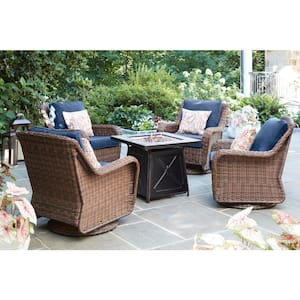
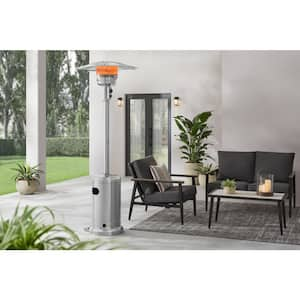
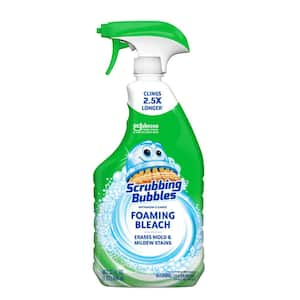
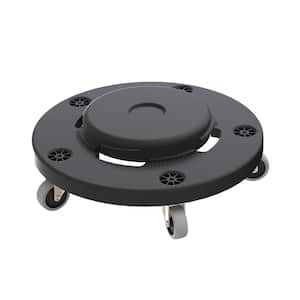
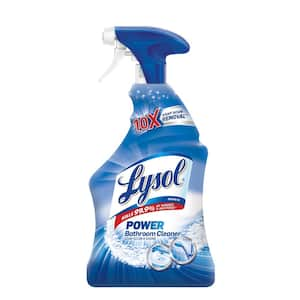
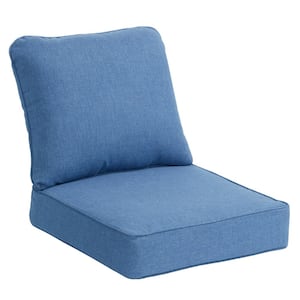
)
)
/17_514245_S_012_Product%20Image%20(square).jpg?im=Resize=(300,300))
;Resize=(300,300))
)
)
)
)
)
/2023_P2_Rain_Barrels_Product%20Image%20(square).jpg?im=Resize=(300,300))
)
;Resize=(300,300))
;Resize=(300,300))
;Resize=(300,300))
/12_SOIL_B_0420_Social%20media%20(square).jpg?im=Resize=(300,300))
;Resize=(300,300))
)
)
;Resize=(300,300))
;Resize=(300,300))
;Resize=(300,300))
;Resize=(300,300))
)
)
;Resize=(300,300))
;Resize=(300,300))
;Resize=(300,300))
;Resize=(300,300))
;Resize=(300,300))
)
/18Patio_Camden_Seagrass_5pcSeating_Planters_302468736_DTL3_L_Social%20media%20(square).jpg?im=Resize=(300,300))
;Resize=(300,300))
;Resize=(300,300))
;Resize=(300,300))
)
;Resize=(300,300))
;Resize=(300,300))
)
;Resize=(300,300))
)
.jpeg?im=Crop,rect=(363.69230769230774,1.2307692307692308,958.7692307692308,958.7692307692308);Resize=(300,300))
;Resize=(300,300))
)
;Resize=(300,300))
;Resize=(300,300))
)
;Resize=(300,300))
)
)
;Resize=(300,300))
;Resize=(300,300))
)
)
;Resize=(300,300))
)
;Resize=(300,300))
;Resize=(300,300))
)
)
;Resize=(300,300))
)
)
/Capello_Spring_Mum_10in_Social%20media%20(square).jpg?im=Resize=(300,300))
;Resize=(300,300))
)
)
;Resize=(300,300))
)
)
;Resize=(300,300))
)
)
;Resize=(300,300))
;Resize=(300,300))











































